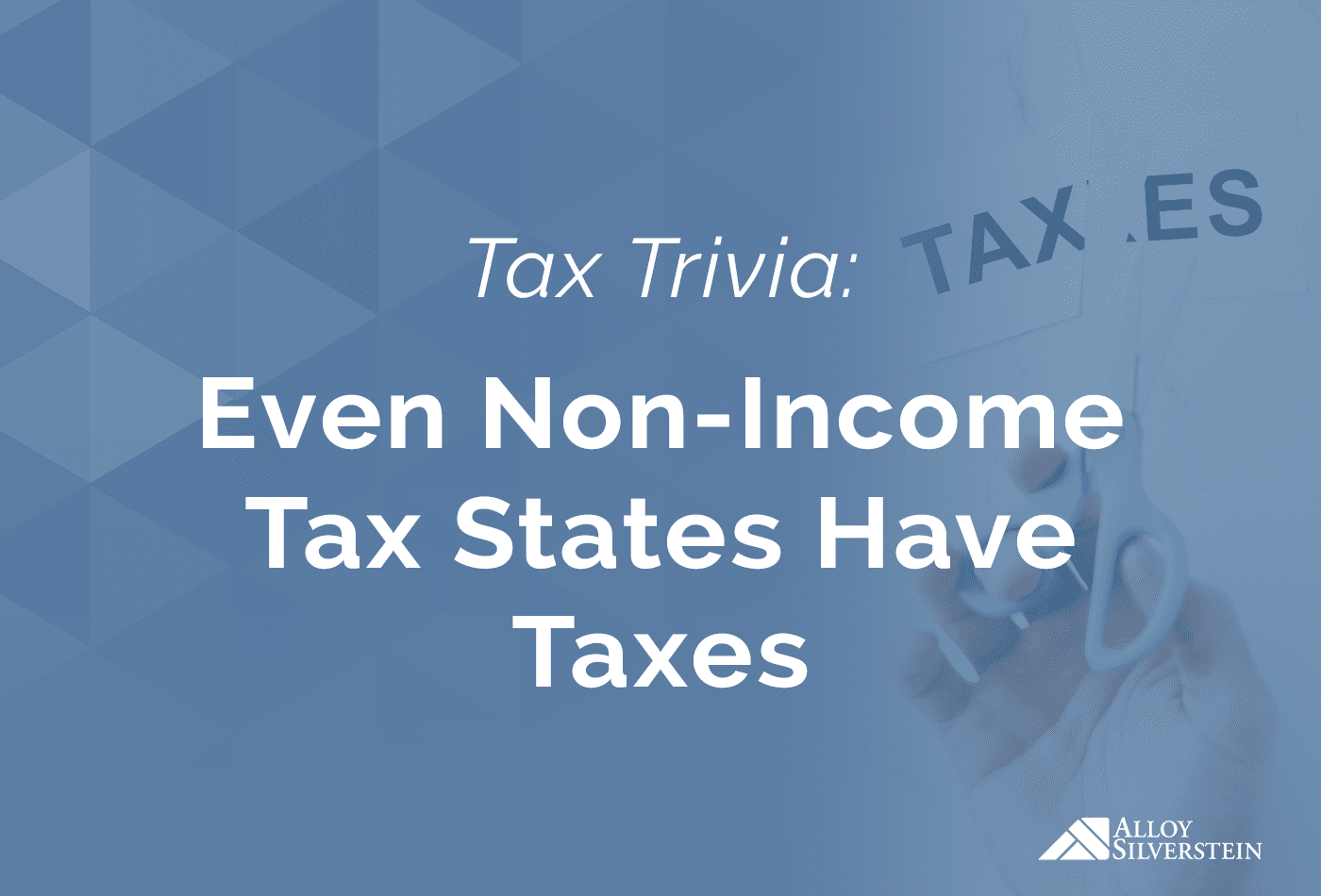With the increased popularity of working-at-home, you may consider moving to one of the nine states that don’t impose an individual income tax.
Before doing so, you should understand how each of these states raises its revenue. And then consider how you can reduce your tax obligation in your current home state.
Here’s some help.
States That Don’t Collect an Income Tax:
But is tax-free really tax-free? According to Kiplinger and the Tax Foundation, here is how the nine states that collect no individual income taxes collect money from their residents.
Alaska
- Alaska is one of five states with no sales tax, but local jurisdictions may impose sales taxes, with rates reaching 7.5%. The average is 1.76%.
- The median property tax rate is $1,182 per $100,000 of assessed home value, slightly above the national average.
Florida
- The statewide sales tax is 6%, but local jurisdictions can add up to 2.5%, with an average combined rate of 7.08%.
- The median property tax rate is $830 per $100,000 of assessed home value, a middle-of-the-road figure nationally.
Nevada
- The state sales tax rate is 6.85% while local jurisdictions can add up to 1.53%. The average combined rate is a lofty 8.23%.
- The median property tax rate is $533 per $100,000 of assessed home value, one of the lowest in the country.
New Hampshire
- Besides no state income tax, this tax haven has no state or local sales taxes.
- Property tax is the main revenue source. The median property tax rate is $2,050 per $100,000 of assessed home value, the third-highest rate in the U.S.
South Dakota
- The 4.5% state tax may increase to an average combined rate of 6.4%, below the national average.
- The median property tax rate is $1,219 per $100,000 of assessed home value, above the national average.
Tennessee
- Tennessee previously had an income tax on dividends and interest, but it disappeared after 2020. The current 7% state sales tax rate may be combined with a 2.75% on sales of single items for an overall maximum rate of 9.55%, the highest in the U.S.
- The median property tax rate is $636 per $100,000 of assessed home value, below the national average.
Texas
- The sales tax in the Lone Star state is 6.25%, plus local jurisdictions can add up to 2%, with an average combined rate of 8.19%, which is well above the national average.
- The median property tax rate is $1,692 per $100,000 of assessed home value, which is a tie for the seventh-highest rate in the country.
Washington
- Municipalities can increase the 6.5% state levy by 4% for an average combined rate of 9.23%, the fourth-highest in the nation.
- The median property tax rate is $929 per $100,000 of assessed home value. This is middle of the pack.
- Unlike the other eight states, Washington has an estate tax, with a $2.193 million exemption (indexed for inflation). Tax rates range from 10% to 20%.
Wyoming
- The 4% sales tax may be increased by municipalities for a combined rate of 5.33%. This is the eighth-lowest in the U.S.
- The median property tax rate is $575 per $100,000 of assessed home value, tied for the tenth-lowest in the nation.
Ideas to lower your property and sales tax bills
- Appeal your property’s valuation assessment. You may be able to lower your property tax bill by providing evidence that your home’s assessed value should be lower. Start your appeals process by contacting your county assessor’s office. Some appeals can be done online, while others may require a visit to your assessor’s local office.
- Shop during tax-free weekends. Many states feature one or two weekends each year where sales taxes are suspended. These sales tax holidays sometimes correspond to high volume shopping periods, such as back-to-school sales in late summer.
- Deduct sales taxes on your Form 1040 tax return. You’re allowed to deduct up to $10,000 of combined property taxes and sales taxes on your tax return, so be sure to look into this deduction if you itemize your Schedule A deductions. The only potential headache if you deduct sales taxes is needing to track and record all sales taxes you’ve paid throughout the year.
As always, should you have any questions or concerns regarding your tax situation please feel free to call. Alloy Silverstein is always here for a tax planning consultation.

